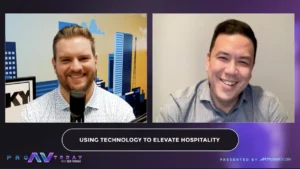Why Are Some Restaurants Resisting Reservation Apps?
While there is little question that technology permeates the ways in which we do business, not everyone is keen to “keep up.” For example, although there are now restaurant apps and online reservation systems, many restaurants still do things the old-fashioned way, taking reservations by phone. With Big Hospitality reporting that “60% of consumers booking a restaurant online do so on a smart phone,” one has to wonder why some restaurants would want to actually avoid such apps.
Some of the benefits of having online booking include the ability to make offers that would attract patrons during slower periods. Reservation apps can allow restaurants to offer off-hours specials to help even out the peaks and valleys. The reservation app ResDiary has a feature called ResDiary Off-Peak that allows restaurants to raise and lower prices throughout the day, based on how busy they are. This is basically responsive supply-and-demand at work.
Yet, as Big Hospitality notes, there is also the problem of no-shows. Because making a reservation is so easy, it’s easy to just flake out on the reservation as well. As a result, the number of reservation no-shows has skyrocketed. Which costs restaurants money.
We reached out to more than a dozen restaurants in the Dallas area to see how they are using this kind of technology, but among the four restaurants to comment—Afrah, Jörg’s Café Vienna, The Dinner Table, and Blue Sushi Sake Grill—not a single one claims to use reservation apps.
In the case of Jörg’s Café Vienna, which is only open for lunch and dinner Wednesday through Saturday, there is no problem with getting people through the door during off-peak hours, since there are no off-peak hours. The Dinner Table similarly is only open during lunch and dinner on weekdays, with longer hours Saturday and only lunch Sunday, so the primary benefit of online apps doesn’t exist for them. The Dinner Table does use GrubHub to have their food delivered, but if you want to make a reservation, you will have to call them.
What they all seem to agree on is that they believe requiring customers to call them to make their reservations makes the experience more personal. While younger people, who are more confident in the technology, don’t think twice about making online reservations, older customers aren’t always so sure their reservation was received. This implies that restaurants may vary in their usage of technology based on their perception of which age demographics they are attracting.
This also implies that as time goes on, even the holdouts will eventually end up using reservation apps. After all, young people don’t stay young forever—but their online habits will remain as they get older.








